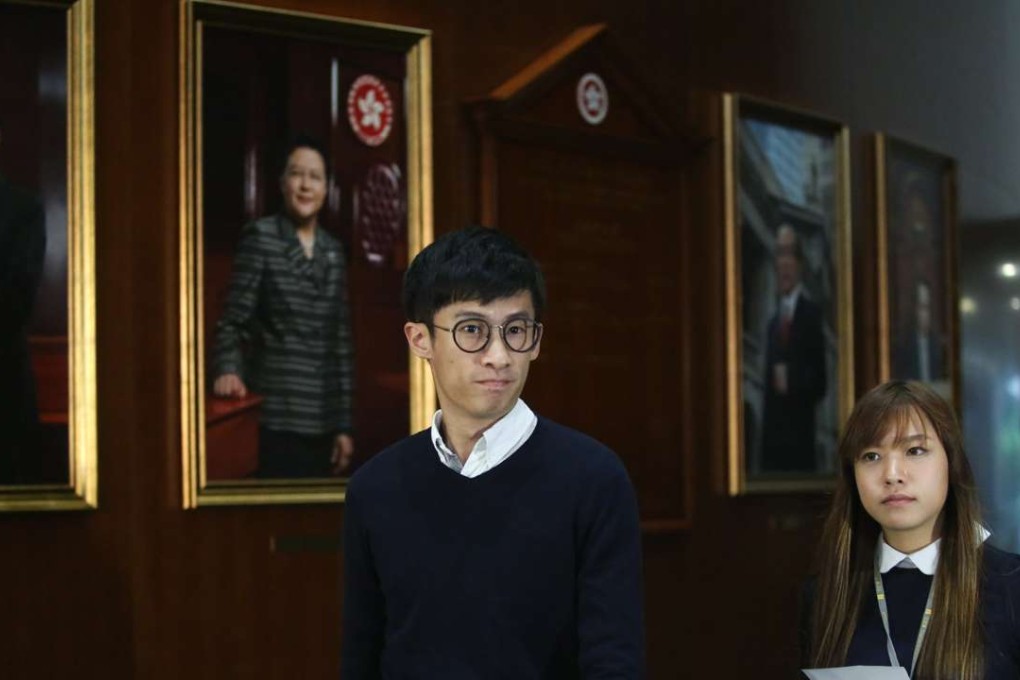Explained: walkouts and oath-taking controversy at start of Legco term
As the third attempt to start business in the newly elected Legislative Council, Wednesday’s meeting could still lead to another standoff between the localists and pro-establishment lawmakers.

What’s happened in the past two weeks?
On October 12 at the opening of the new Legco term, lawmakers took centre stage and declared the standard oath to be formally inducted to the chamber.
Youngspiration’s Sixtus Baggio Leung Chung-hang and Yau Wai-ching decided to alter their oaths and instead pledged allegiance to “the Hong Kong nation”, referring to the sovereign state as “Chee-na”, a variation of the derogatory “Shina” used by Japan for China during the second world war. They also produced a banner that read “Hong Kong is not China”. They had their oaths declared invalid by Legco secretary-general Andrew Leung Kwan-yuen.
Leung later said he would allow them to re-take their oaths properly if they wrote to him to do so. But a day before the second meeting on October 19, the government filed an emergency lawsuit arguing that the pair be disqualified immediately. The court struck down a request for an injunction but allowed the judicial review case to be heard on November 3 over the Legco president’s decision to allow a second chance for them.
Outside the chamber, voices criticising the pair grew louder as groups demanded they issue an apology for insulting China and Chinese people with their derogatory remarks. The pair dug their heels in, insisting they had done nothing wrong.
On the day of the second meeting however, pro-establishment lawmakers staged a walkout, causing the meeting to be aborted as a result of a lack of quorum.